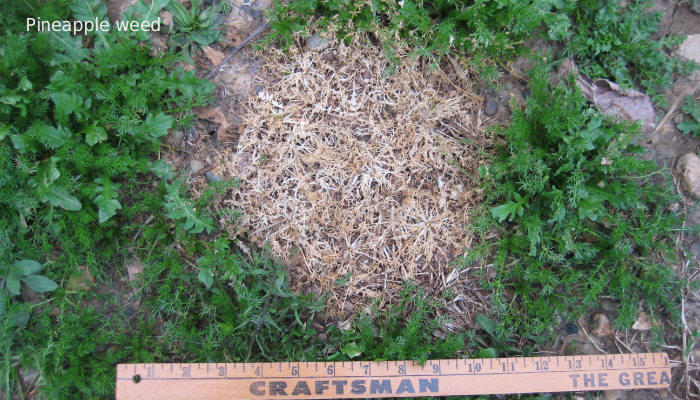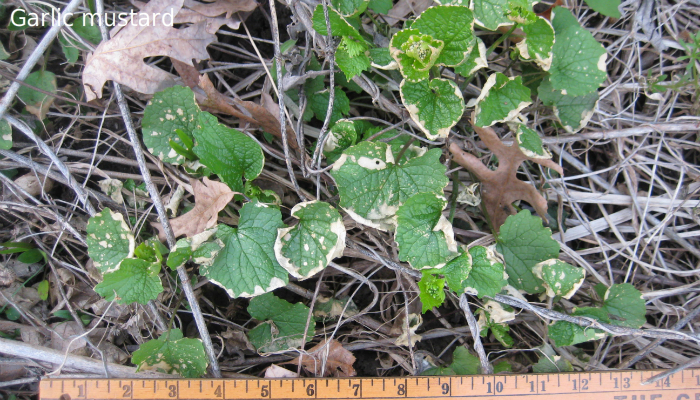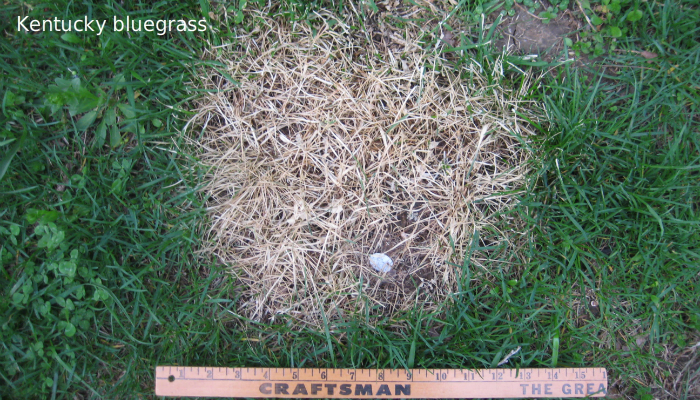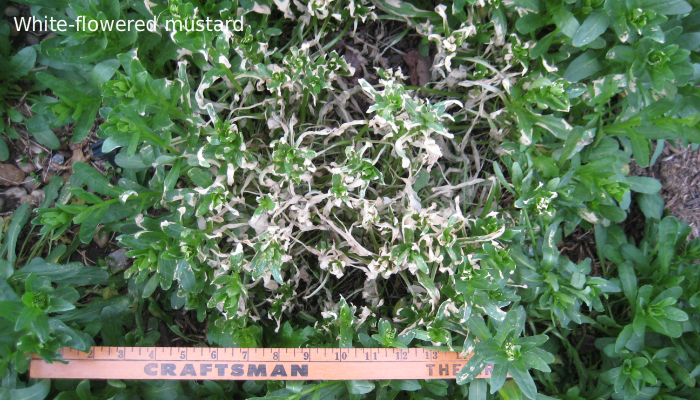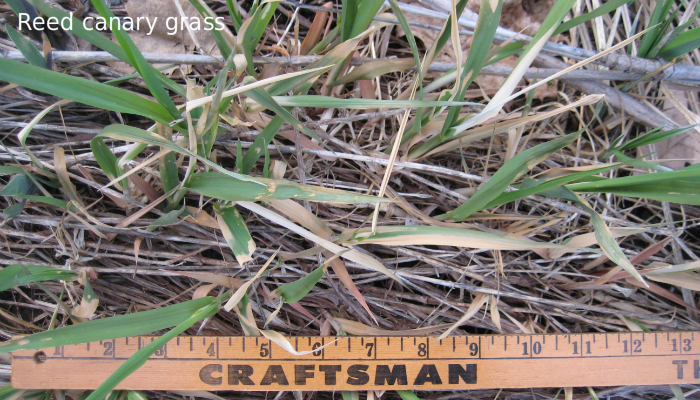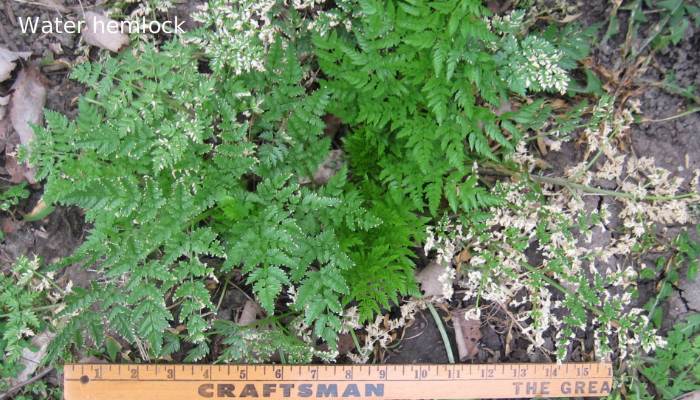Vinegar as an Herbicide
In March at Prairie Preview, Joyce Miller and I discussed her need to control weeds around a schoolchildren’s garden, without using dangerous herbicides. At first we focused on propane weed burners because we had already corresponded a bit about them in my blog, Preburning a Blackline with a Propane Weed Burner, and I had my weed burning equipment with me while we were talking. But then I mentioned that about 45 years ago, when my family lived in a subdivision filled with small children, I had experimented and found that ordinary grocery store vinegar was effective on many – but not all – weed species.
So last week I did a few test sprays around my yard with a little one quart spritzer to refresh my memory and share with you my results. Many weed species have a waxy coating or a layer of fine fur that sheds water, so I added a drop of detergent to break the surface tension of the vinegar and allow it to cling better and not bead up and run off. I also added a splash of isopropyl alcohol (rubbing alcohol) as an organic solvent to help the vinegar penetrate plant tissues.
The immediate results of one application were:
- Pineapple Weed – foliage turned yellow and collapsed within hours and is probably dead at the roots.
- Garlic Mustard – leaves acquired brown spots and looked sickly, but will probably sent up a flower stalk anyway.
- Dandelion – leaves all turned brown within hours but the taproot may survive to resprout.
- Kentucky Bluegrass – leaves bleached out within two days and is probably dead.
- White-flowered Mustard – leaves bleached white and wilted within hours, but the stalks remained sheltered and green and may resprout.
- Reed Canary Grass – leaves acquired some yellow streaks but the vinegar is probably only a temporary impediment to its growth.
- Water Hemlock – lacy leaves quickly blistered, bleached, and curled up, but within three days the taproot had sent up a new rosette of bright green fronds.
Some of the species that were only damaged with the initial application are probably vulnerable to a second application. But repeated spraying of vinegar at the same spot many times might acidify the soil so that desired plants cannot grow there, which invites caution against excess use. Vinegar’s effectiveness damaging plants is due to its strong acidity, which is why we use it to make pickles, since it kills the microbes that would cause spoilage. Other strong organic acids, like lemon juice, will do the same.
So if you are concerned about the toxicity of industrial herbicides, but are still looking for the usefulness of a spray, try vinegar. Young and tender weeds are the most vulnerable, while a July thistle will probably laugh at you. It’s also probably best to apply on a sunny morning, with no rain in the forecast for the rest of the day.
